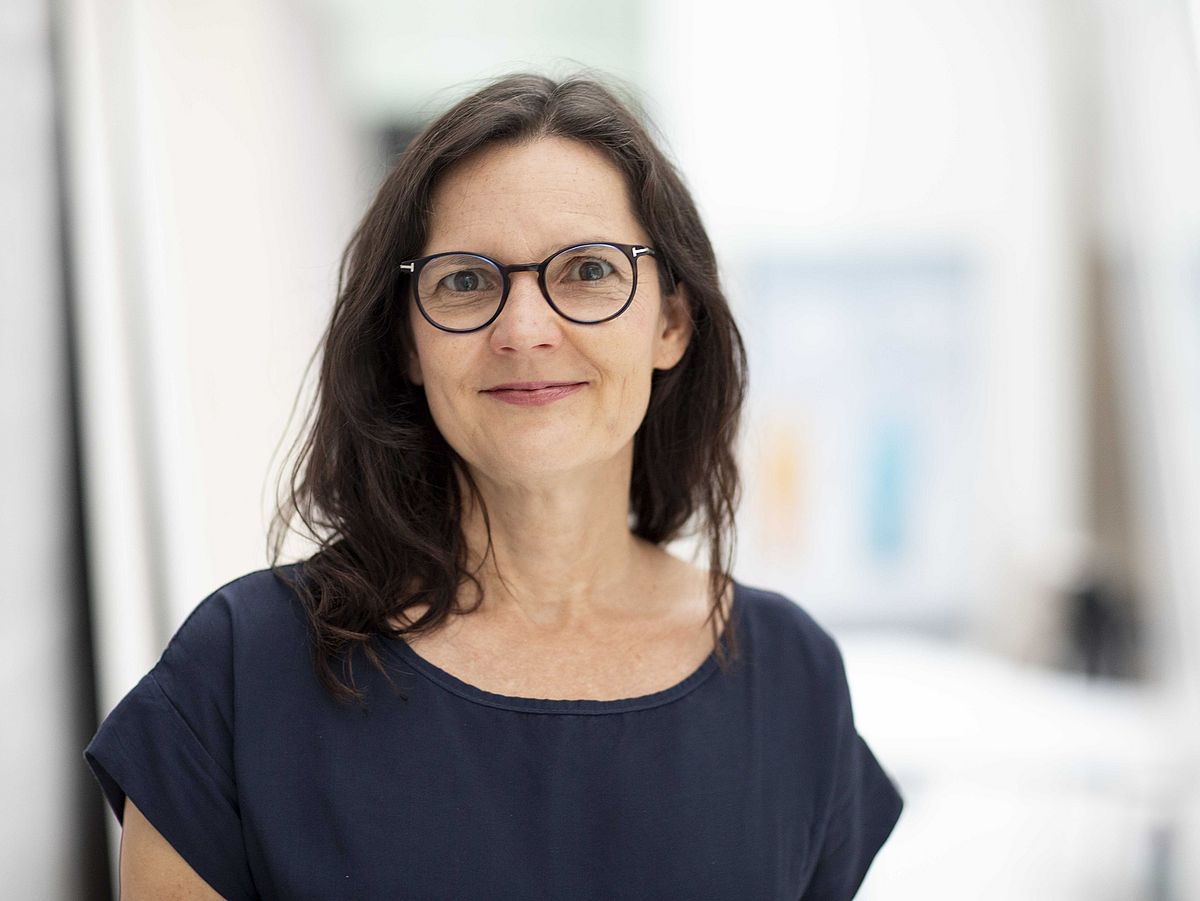An espresso with…Katrin Krämer

Katrin Krämer studied German Linguistics and Literature as well as English Studies from 1986 to 1989 and 1992 to 1994 at the University of Bremen. Since the early 1990s, she has been working for Radio Bremen where she is now a presenter for Bremen Zwei. At the end of this year, she will host a series of 50th anniversary events organised by the University of Bremen and the alumni association titled "Just Change the World”, which will focus on the University of Bremen’s 50 years of service.
Why did you choose Uni Bremen?
I actually didn’t want to go to the University of Bremen. I’m from Bremen and after graduating from secondary school I wanted to get out, to Berlin, Hamburg or Munich, and study theatre. But for family reasons that wasn’t possible, so I enrolled here.
How was your experience at Uni Bremen?
Really terrible at first. I was part of the first class in the new master’s programme and in the beginning it was pretty chaotic. I remember the first days clearly, when the administration was completely overwhelmed — no one knew where anything was. In the first few semesters, it was all about finding your way around.
But then I found real pleasure in great courses taught by Hans-Wolf Jäger and Dieter Richter. I took a seminar with him on Goethe’s ItalianJourney, which ended with a trip to Rome. We gave presentations at historical sites from the book, mine was about the Cestius Pyramid. That was a really intense learning experience.
Yet you still went to another university…
Yes, I’m a person who likes to find ways out of my comfort zone. My dream was to go to Freiburg, which I did. There, I had to go through what felt like a job interview. I was greeted with a somewhat disdainful look and the remark: “Bremen University…I bet they do their master’s theses on Bremen cycle paths.”
I got my place there anyway and then quickly realised: that wasn’t what I wanted, either. For example, there were lectures in Old and Middle English as early as 8 o'clock in the morning. And we had to stand up — just like in primary school — and greet the professor in chorus with "Good morning, Mrs. Tristram!" I soon thought the University of Bremen wasn't so bad after all and came back, for other reasons as well. I got into a study project here, which I thought was great. In comparison to the school-like system in Freiburg, I came to really appreciate my study programme at the University of Bremen.
So what did you actually write your master's thesis about?
Not about cycle paths! It had to do with Radio Bremen, because I worked in the radio drama department there while I was studying. In 1995 the station celebrated its 50th anniversary. The head of the radio drama department at the time called my attention to the fact that there had not yet been any research on the beginning of radio drama at Radio Bremen, which served an important social function in the post-war period. I first produced a three-hour radio feature. And then I also wrote my master's thesis on the topic.
Was the study programme, in addition to the master's thesis, also important for your professional development?
The study course was a good foundation, especially for the many radio literature programmes that I was responsible for editing and presenting. Today I work for Bremen Zwei and NDR as a literary critic and have authors as guests on “Talk Time" on Bremen Zwei to talk about their books. Of course, I benefit from having learned how to deal with texts — critical understanding of texts and the basics of literary history, that helps. And at university I also learned how to work independently.
“50 years of the University of Bremen”—What do you associate with that?
My first visit to the university, on the open day in 1971 when the university first opened. I was four years old. My parents went there with my brother and me. Neither of my parents had studied and they looked at this new building in amazement and also a bit longingly. They must have transmitted that feeling to me and I stood there, deeply impressed, thinking: "This must be something very important".







